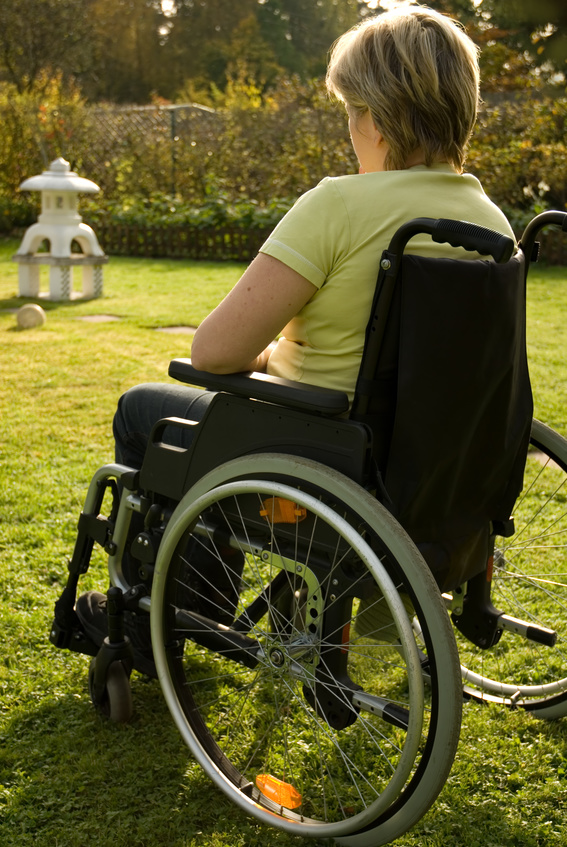Think again. Here are 5 ways that meditation goes beyond the spiritual to improve your health.
- 3 minutes to read
- 20 August 2019
- Cindy
Think again. Here are 5 ways that meditation goes beyond the spiritual to improve your health.
Search meditation in Google images and you will be flooded with mystical monks watching sunsets and crossed legged figures with hands on knees and thumb and index fingers touching.

Images like this lead to misconceptions about meditation. Below are a few commonly held myths.
“Meditation is a religious practice.”
Meditation doesn’t have to be linked to any religious beliefs or even spiritual ideas.
“I have a spinal cord injury and I can’t sit like that, so I can’t meditate.”
Meditation focusses on the awareness of the breath in and out of the body and fully experiencing the present moment. Breathe is the only prerequisite. Everyone can meditate.
“Meditation has no real health benefits.”
Research shows that there are real health benefits for those coping with illnesses and injuries.
Keep reading to find out 5 proven health benefits of meditation. Plus 4 DOs and DON’Ts for getting started today.

If you have a mind, you can meditate.
5 proven health benefits
#1 Reduces stress in the body
Our body automatically deploys mechanisms in response to stress from perceived threats. This response triggers physiological effects which are useful when we need to escape from danger. These include increased blood flow and metabolism as well as the production of cortisol – the body’s stress hormone.
Exposure to ongoing stressors, however, such as dealing with a spinal cord injury or chronic stress from work, can result in this response happening too often. This can lead to physical and mental health problems.
Meditation has the potential to reduce this ‘fight-or-flight’ stress response in the body by channelling attention to the present moment. This means less perceived threats and in turn less stress related health problems.

Meditation can help cope with stress from work or injury.
#2 Strengthens immune system
Research suggests that meditation boosts the immune system. Stronger immune function could be especially beneficial when living with a spinal cord injury, another good reason to give meditation a try.

The production of white blood cells, which helps the body fight disease, may be increased through meditation.
#3 Improves sleep and focus
Meditation has also been shown to improve sleep quality and people with insomnia. Better sleep also leads to better focus. If you struggle with your sleep, you might want to try out regular meditation.

Meditating can help those with insomnia.
#4 Anxiety control and decreased depression
Meditation can aid in reducing negative emotions and feelings of anxiety. It could be used as a positive tool to deal with daily life stressors. Meditation has been found to have the potential to change the part of the brain that may be responsible for depression.

Use meditation to deal with negative feelings.
#5 Improves pain tolerance
Researchers have investigated how meditation may alter the way the body perceives pain by changing our brain’s sensitivity to pain. This could prove to be a helpful supplemental tool for those struggling with debilitating pain from an injury or illness.

You can retrain your brain.
4 DOs and DON’Ts
#1 Be in a comfortable seat
DON’T lay down as you may be tempted to fall asleep.
DO find a comfortable seat in a space where you won’t be disturbed. Your wheelchair is perfectly fine, too.

Find a seat in a garden or local park.
#2 Pick a time
DON’T leave it to chance.
DO find a designated time in your day to practice your mindfulness mediation. Having a set time will make you more likely to stick to it until it becomes regular part of your routine.

Schedule a time to meditate each day.
#3 Keep it short
DON’T try to meditate for 30 minutes or more at first.
DO start with 5 to 10 minutes. That’s enough to be effective.

Even 5 minutes a day can have benefits.
#4 Use an app
DON’T feel overwhelmed. Guided meditation is a great way to start.
DO use a meditation app like Headspace. It’s a great guide for beginners and is available in English, French and German.

There are many meditation apps available for free.
Do you practice meditation? If so, what has your experience been? If not, would you be willing to try it out?

